|
|
|
Reading List AP
Euro: MR. Kay
Listed below
is a selection of texts for students enrolled in AP European
History for the 2013-2014 school year. Students will read one
book by the end of October . The teacher must be
informed as soon as a book is purchased or taken out of the
library. Make your choices quickly as only 2
students per book will be allowed. Students will be formally
assessed on their critical review of the book and its author.
|
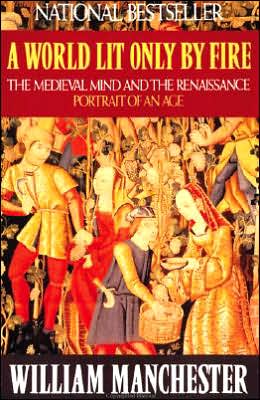 |
A
World Lit Only by Fire: The Medieval Mind and the
Renaissance Portrait of an Age
by William Manchester
One of the most volatile periods of western history
witnessed the passing of the Dark Ages and the dawning of
the Renaissance, illuminated by magnificent scientific and
artistic achievements and spectacular leaps of thought and
imagination. Manchester's narrative weaves together
extraordinary figures, varied elements and accomplishments
of the period. |
|
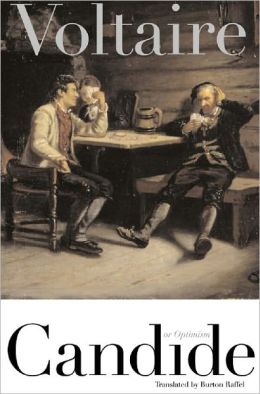 |
Candide
by
Francois-Arouet Voltaire
Candide
is the story of a gentle man who, though pummeled and
slapped in every direction by fate, clings desperately to
the belief that he lives in "the best of all possible
worlds." On the surface a witty, bantering tale, this
eighteenth-century classic is actually a savage, satiric
thrust at the philosophical optimism that proclaims that all
disaster and human suffering is part of a benevolent cosmic
plan. |
|
 |
Coming
Up for Air
by George Orwell
Insurance salesman George "Fatty" Bowling lives with his
humorless wife and their two irritating children in a dull
house in a tract development in the historyless London
suburb of West Bletchley. The year is 1938; doomsayers are
declaring that England will be at war again by 1941. . . .
a chance encounter with a poster in Charing Cross sets him
off on a tremendous journey into his own memories--memories,
especially, of a boyhood spent in Lower Binfield, the
country village where he grew up. His recollections are
pungent and detailed. Touch by touch, he paints for us a
whole world that is already nearly lost: a world not yet
ruled by the fear of war and not yet blighted by war's
aftermath. |
|
|
|
|
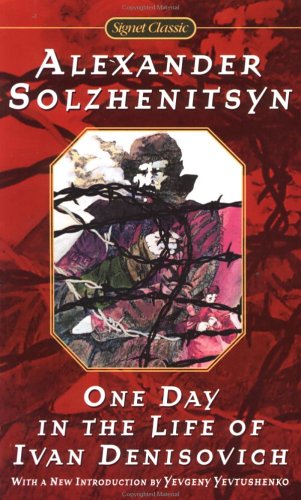 |
One Day
in the Life of Ivan Denisovich
by AlexanderSolzhenitsyn
A
masterpiece of modern Russian fiction, this novel is one of
the most significant and outspoken literary documents ever
to come out of Soviet Russia. A brutal depiction of life in
a Stalinist camp and a moving tribute to man's triumph of
will over relentless dehumanization, this is Solzhenitsyn's
first novel to win international acclaim. |
|
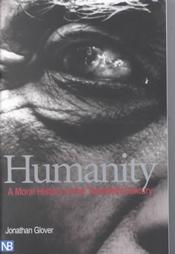 |
This important book confronts the brutal history of the
twentieth century to unravel the psychological mystery of
why so many atrocities occurred--the Holocaust, Hiroshima,
the Gulag, Cambodia, Yugoslavia, Rwanda, and others--and how
we can prevent their recurrence. Jonathan Glover finds
disturbing similarities in the psychology of those involved
with atrocities, yet offers hope that the development of a
political and personal moral imagination can empower us to
resist all acts of cruelty. |
|
 |
Utopia
by Thomas More
First published in 1516,
Saint Thomas More's Utopia is one of the most important
works of European humanism. Through the voice of the
mysterious traveler Raphael Hythloday, More describes a
pagan, communist city-state governed by reason. Addressing
such issues as religious pluralism, women's rights,
state-sponsored education, colonialism, and justified
warfare, Utopia seems remarkably contemporary nearly five
centuries after it was written, and it remains a
foundational text in philosophy and political theory.
|
|
|
|
|
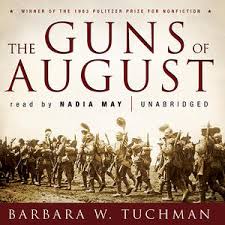 |
The Guns of August by Barbara Tuchman
"More dramtatic than fiction...THE GUNS OF
AUGUST is a magnificent narrative--beautifully organized,
elegantly phrased, skillfully paced and sustained....The
product of painstaking and sophisticated research."
CHICAGO TRIBUNE
Historian and Pulitzer Prize-winning author Barbara Tuchman
has brought to life again the people and events that led up
to Worl War I. With attention to fascinating detail, and an
intense knowledge of her subject and its characters, Ms.
Tuchman reveals, for the first time, just how the war
started, why, and why it could have been stopped but wasn't.
A classic historical survey of a time and a people we all
need to know more about, THE GUNS OF AUGUST will not be
forgotten.
|
|
|
|
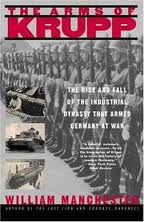 |
-
Arms of Krupp by William Manchester
This is an excellent and erudite study of the Krupp family
from the first Krupp in the 16th century to the last in the
1960s. A brilliantly researched and marvelously told story
of a family whose fortunes mirrored the rise and fall of
Germany from 1850 onwards. Krupp armaments played an
important role in the defeat of France under Napoleon III
and in the arming of the Second Reich leading to World War
One. Their role in the Third Reich is examined minutely and
it is quite clear that the company was vitally important in
rearming Germany after Versailles and by supporting Hitler
from an early stage played an odious part in the Wermacht's
wars of conquest.
|
|
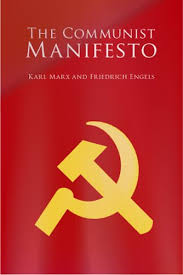 |
The Communist Manifesto by Karl Marx and Friedrich Engels
The complete The Communist Manifesto by Karl Marx and Friedrich
Engels, in the 1888 English version edited by Engels
himself. One of the most influential political treatises of
all time, The Communist Manifesto is essential reading for
every student of politics and history.
|
|

|
The Rise and Fall of the Great Powers by
Paul Kennedy
Yale historian
Kennedy surveys the ebb and flow of power among the major
states of Europe from the 16th centurywhen Europe's
preeminence first took shapethrough and beyond the present
erawhen great power status is devolving again upon the
extra-European states. Stressing the interrelationships
among economic wealth, technological innovation, and the
ability of states efficiently to tap their resources for
prolonged military preparedness and warmaking, he notes that
those states with the relatively greater ability to maintain
a balance of military and economic strength assumed the
lead. Kennedy never reduces the analysis to crude
materialism or empty tautology. Stimulating, erudite,
carefully crafted, and readable; for public and academic
libraries. |
|
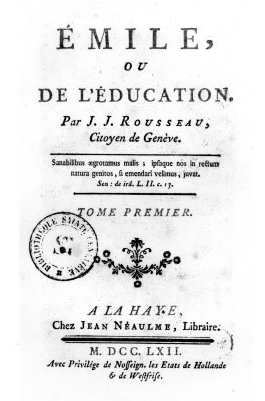 |
Emile, or On Education by Jean-Jacques Rousseau
Two hundred years before Jean Piaget did a twenty year
longitudinal study of his children, Rousseau did this
longitudinal study of an imaginary child. This novel is a
story of how Rousseau would have raised such a child placed
in his charge. As full-time governor of Emile, Rousseau
begins his study, not with the intent of discovering how the
boy would grow into manhood, but with the conscious intent
of shaping and controlling Emile's maturation.
|
|
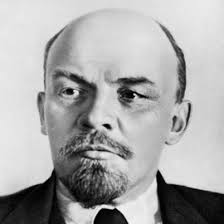 |
Imperialism the
Highest Stage of Capitalism
Ihis pamphlet by Lenin was first published 90 years
ago in the midst of World War I and on the eve of the
Russian revolution. In this work Lenin sets out to
achieve two things; first, to give a concise and scientific
explanation of the nature of Imperialism and, secondly, to
debate the ideas of influential and long time German Social
Democratic Party leader Karl Kautsky who, under the pressure
of war helped to lead the capitulation of the majority of
his party to the side of the German ruling class.
Advocates for social change familiar with arguments on the
"left" blaming the cause of today's ills on various forms of
globalisation, - which is meant to represent a more
aggressive and rapacious form of imperialism - will find
Lenin's work invaluable. Lenin presents a more than
convincing case that what we see today is no more than the
normal workings of imperialism and therein lays the source
of the problem |
|
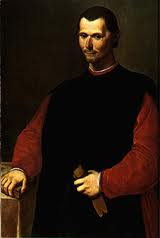 |
The
Prince
by
Niccolo Machiavelli
Machiavelli's The Prince defined modern politics - and is
still an excellent guide to everyone who lives among other
humans and tries to influence them, from high public office
to office politics. This excellent translation by W.K.
Marriott offers all of Machiavelli's cynical and often
controversial advice on betrayal, shifting allegiances,
warfare and the role of the citizenry, as well as how to
handle annexing your neighbors, bad press, bad advisers,
flatterers, and taxation. |
|
|
|
Other Suggestions:
The Last Lion by William
Manchester: 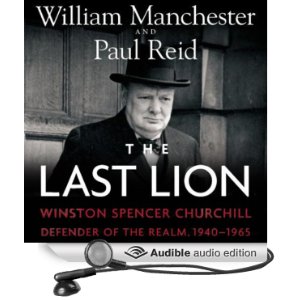
(the life of WInston Churchill)
The Romanovs by W. Bruce
Lincoln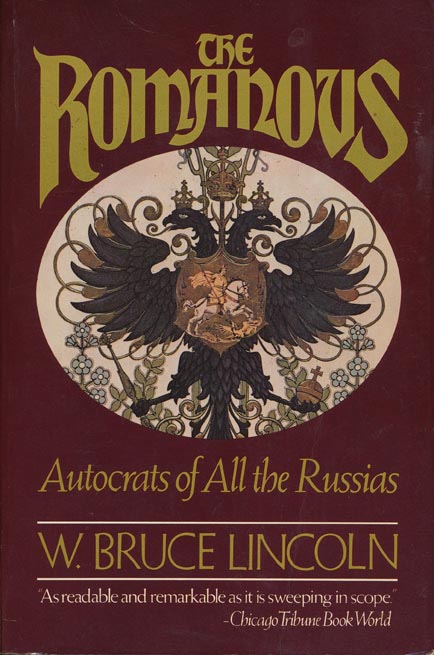
(A HUGE book on the entire Dynasty)
Hitler by Joachim C.
Fest
Winston Churchill's books on World War
II:
(This is a six volume set, choose any of the
volumes)
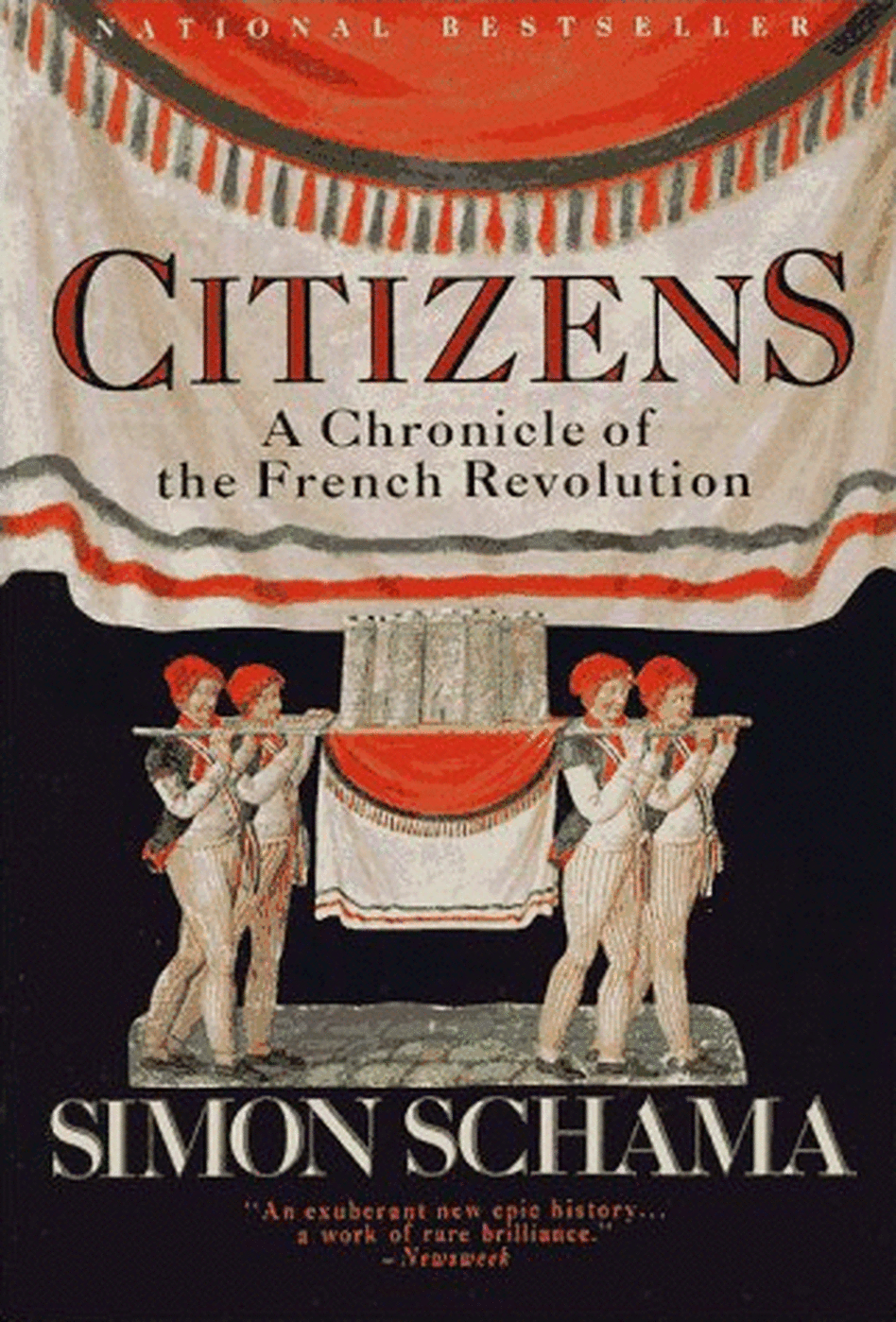
Citizens: A Chronicle on the French Revolution by
Simon Schama
The ultimate book on the most famous revolt ever!
The Third Reich by
Albert Speer:
(The Ultimate Authority on the Third Reich by
Hitler's minister of weapons)
How to Write a Book Review
A book review is a description, critical analysis, and an evaluation on
the quality, meaning, and significance of a book, not a retelling.
It should focus on the book's purpose, content, and authority. A
critical book review is not a book report or a summary. It is a
reaction paper in which strengths and weaknesses of the material are
analyzed. It should include a statement of what the author has tried
to do, evaluates how well (in the opinion of the reviewer) the
author has succeeded, and presents evidence to support this
evaluation. There is no right way to write a book review. Book
reviews are highly personal and reflect the opinions of the
reviewer. A review can be as short as 50-100 words, or as long as
1500 words, depending on the purpose of the review.
The following are standard procedures for writing book reviews; they are
suggestions, not formulae that must be used.
1. Write a statement giving essential information about the book: title,
author, first copyright date, type of book, general subject matter,
special features (maps, color plates, etc.), price and ISBN.
2. State the author’s purpose in writing the book. Sometimes authors
state their purpose in the preface or the first chapter. When they
do not, you may arrive at an understanding of the book’s purpose by
asking yourself these questions:
a. Why did the author write on this subject rather than on some other
subject?
b. From what point of view is the work written?
c. Was the author trying to give information, to explain something
technical, to convince the reader of a belief’s validity by
dramatizing it in action?
d. What is the general field or genre, and how does the book fit into
it? (Use outside sources to familiarize yourself with the field, if
necessary.) Knowledge of the genre means understanding the art form.
and how it functions.
e. Who is the intended audience?
f. What is the author's style? Is it formal or informal? Evaluate the
quality of the writing style by using some of the following
standards: coherence, clarity, originality, forcefulness, correct
use of technical words, conciseness, fullness of development,
fluidity. Does it suit the intended audience?
g. Scan the Table of Contents, it can help understand how the book is
organized and will aid in determining the author's main ideas and
how they are developed - chronologically, topically, etc.
h. How did the book affect you? Were any previous ideas you had on the
subject changed, abandoned, or reinforced due to this book? How is
the book related to your own course or personal agenda? What
personal experiences you've had relate to the subject?
i. How well has the book achieved its goal?
j. Would you recommend this book or article to others? Why?
3. State the theme and the thesis of the book.
a. Theme: The theme is the subject or topic. It is not necessarily the
title, and it is usually not expressed in a complete sentence. It
expresses a specific phase of the general subject matter.
b. Thesis: The thesis is an author’s generalization about the theme, the
author’s beliefs about something important, the book’s philosophical
conclusion, or the proposition the author means to prove. Express it
without metaphor or other figurative language, in one declarative
sentence.
4. Explain the method of development-the way the author supports the
thesis. Illustrate your remarks with specific references and
quotations. In general, authors tend to use the following methods,
exclusively or in combination.
a. Description: The author presents word-pictures of
scenes and events by giving specific details that appeal to the five
senses, or to the reader’s imagination. Description presents
background and setting. Its primary purpose is to help the reader
realize, through as many sensuous details as possible, the way
things (and people) are, in the episodes being described.
b. Narration: The author tells the story of a series of
events, usually presented in chronological order. In a novel
however, chronological order may be violated for the sake of the
plot. The emphasis in narration, in both fiction and non-fiction, is
on the events. Narration tells what has happened. Its primary
purpose is to tell a story.
c. Exposition: The author uses explanation and analysis to
present a subject or to clarify an idea. Exposition presents the
facts about a subject or an issue as clearly and impartially as
possible. Its primary purpose is to explain.
d. Argument: The author uses the techniques of persuasion
to establish the truth of a statement or to convince the reader of
its falsity. The purpose is to persuade the reader to believe
something and perhaps to act on that belief. Argument takes sides on
an issue. Its primary purpose is to convince.
5. Evaluate the book for interest, accuracy, objectivity, importance,
thoroughness, and usefulness to its intended audience. Show whether
the author's main arguments are true. Respond to the author's
opinions. What do you agree or disagree with? And why? Illustrate
whether or not any conclusions drawn are derived logically from the
evidence. Explore issues the book raises. What possibilities does
the book suggest? What has the author omitted or what problems were
left unsolved? What specific points are not convincing? Compare it
with other books on similar subjects or other books by the same as
well as different authors. Is it only a reworking of earlier books;
a refutation of previous positions? Have newly uncovered sources
justified a new approach by the author? Comment on parts of
particular interest, and point out anything that seems to give the
book literary merit. Relate the book to larger issues.
6. Try to find further information about the author - reputation,
qualifications, influences, biographical, etc. - any information
that is relevant to the book being reviewed and that would help to
establish the author's authority. Can you discern any connections
between the author's philosophy, life experience and the reviewed
book?
7. If relevant, make note of the book's format - layout, binding,
typography, etc. Are there maps, illustrations? Do they aid
understanding?
8. Check the back matter. Is the index accurate? Check any end notes or
footnotes as you read from chapter to chapter. Do they provide
important additional information? Do they clarify or extend points
made in the body of the text? Check any bibliography the author may
provide. What kinds of sources, primary or secondary, appear in the
bibliography? How does the author make use of them? Make note of
important omissions.
9. Summarize (briefly), analyze, and comment on the book’s content.
State your general conclusions. Pay particular attention to the
author's concluding chapter. Is the summary convincing? List the
principal topics, and briefly summarize the author’s ideas about
these topics, main points, and conclusions. Use specific references
and quotations to support your statements. If your thesis has been
well argued, the conclusion should follow naturally. It can include
a final assessment or simply restate your thesis. Do not introduce
new material at this point.
Some Considerations When Reviewing History and other Nonfiction:
1.With what particular subject or period does the book deal?
2.How thorough is the treatment?
3.What were the sources used?
4.Is the account given in broad outline or in detail?
5.Is the style that of reportorial writing, or is there an effort at
interpretive writing?
6.What is the point of view or thesis of the author?
7.Is the treatment superficial or profound?
8.For what group is the book intended (textbook, popular, scholarly,
etc.)?
9.What part does biographical writing play in the book?
10.Is social history or political history emphasized?
11.Are dates used extensively, and if so, are they used intelligently?
12.Is the book a revision? How does it compare with earlier editions?
13.Are maps, illustrations, charts, etc. used and how are these to be
evaluated?
SAMPLE BOOK REVIEW
'Blood
of Victory': A Novelist Continues His Exploration of Wartime Europe
By NEIL GORDON
All
of Alan Furst's characters are intimate with tragedy. Their lives, in the
Europe of the late 1930's and early 1940's, have been taken away by
revolution and war; they have lost families, homes and the rich familiarity
of their past. Now they are trying to figure out not just how to live with
the daily horror all around them but -- even more difficult -- why. The
first question will take them deep into the clandestine fight against
fascism. The second is never answered.
''Blood of
Victory'' is the seventh of Furst's series of novels set within the shifts
of European geopolitics that took place roughly between the Spanish Civil
War and the summer of 1941. His particular focus is the first two years of
World War II, with ''half of France . . . occupied by Germany, Poland
enslaved, London in flames.'' These are the years in which the world awaited
declarations of war from Russia and America, when Germany's defeat at the
sole hands of the British was impossible to imagine and the likely outcome
of the conflict was ''a brutal peace, punctuated by the oppression of the
Jews.''
Like Furst's
previous volumes, ''Blood of Victory'' is populated by an ''army of the lost
and forgotten'' -- the Russians, Poles, Hungarians, French, Germans,
Bulgarians, Romanians and Spaniards who became the foot soldiers of
resistance, guided from afar by the intelligence agencies of London and
Moscow. They conduct their lives in Furst's signature duotone palette, a
cinematic noir vision of handsome men and women wearing trench coats,
smoking Balkan Sobranie cigarettes, listening to Stephane Grapelli and
Django Reinhardt and inhabiting nighttime streets in cities from Istanbul to
occupied Paris, Furst's fictional home.
True to form,
the central figure in ''Blood of Victory'' is Ilya Serebin, an emigre,
''half Russian aristocrat, half Bolshevik Jew,'' who escaped from Stalin's
purges after serving in the Red Army. Why has he been forced to live in
Paris, maintaining a household in Istanbul and running a sad and touching
organization for exiles? ''Why not?'' asks a friend. ''Until a better
two-word history of the U.S.S.R. came along,'' Serebin observes, ''it would
do.''
Serebin's
lover, a beautiful Frenchwoman named Marie-Galante Labonniere, recruits him
into the network of Count Janos Polanyi, a Hungarian spymaster who went
underground in Furst's last novel and is now working for London out of
Istanbul. The job at hand is Polanyi's effort to deny the Wehrmacht access
to the ''blood of victory,'' crucial supplies from Romania's Ploesti oil
fields -- a key sabotage effort, visited previously by Furst, that also
forms the basis of Eric Ambler's ''Background to Danger.''
And so
Serebin sets out on his first foray into the world of wartime European
espionage. It's familiar fictional territory, but it has never received
treatment like this. Furst expresses the singular acuity of his historical
vision in an exact, nearly telegraphic prose that relies heavily on sentence
fragments and rapid-fire sequences of images to capture the extraordinary
complexity of his characters' political and personal reality. His writing is
eloquent in its factual, fatigued simplicity:
''Earlier
that day there'd been fighting at the waterfront. . . . So said the barman
at the dockside tavern. Intense volleys of small arms fire, a few hand
grenades, machine guns, then silence. Serebin listened carefully, calculated
the distance, ordered a glass of beer, stayed where he was. Safe enough.
Serebin was 42, this was his fifth war, he considered himself expert in the
matter of running, hiding or not caring.''
Serebin's
tour of Istanbul is portrayed with a master's hand. Furst's vision of the
city's European neighborhoods, their seedy and beautiful shabbiness tinged
with Ottoman and Byzantine kitsch, is virtually flawless. As Serebin stares
out a taxi window, he sees ''melon rinds with clouds of flies, a thousand
cats, rust stains on porphyry columns, strange light, strange shadows in a
haze of smoke and dust, a street where blind men sold nightingales.''
The
characters -- world-weary, brooding, hard boiled and beautiful -- are as
expertly drawn as their surroundings, but they are a bit less believable.
Each of Furst's novels has a similar 40-something male as a main character:
a good person, worldly and lucky at love, unmarried and without children.
Serebin, like most of the others, lives on the edge of some fairly select
European society. His interior life is large and he has an independent
income.
Like all of
Furst's protagonists, however, ''Serebin is to some degree limited by his
own cinematic qualities, with just an edge more fantasy than fiction in his
hard-boiled realization: Serebin was a man who had love affairs, one
followed another. It was his fate, he believed, that life smacked him in the
head every chance it got, then paid him back in women.'' A limitation? But
then, consider -- as Furst's characters might say, a worldly sigh implicit
in their clipped language -- the market. This is commercial fiction, which
means that it is (no less legitimately than a movie) a performance for a
paying audience.
At the same
time, though, Furst's vision is intellectually complex and artistically
rewarding. More than anything else, he is interested in the subjective
experience of individuals in the countries that were occupied, attacked or
threatened by Hitler. ''Blood of Victory,'' like his other books, is infused
with a global perspective on the march of history that allowed the rise of
the Third Reich, an awareness of the vast collaboration it required on the
part of the governments and citizens of Europe. The frequent passages of
historical analysis in ''Blood of Victory'' -- as in all of Furst's books --
are inspired, exemplifying the power of fiction to capture what formal
histories often can't.
Paris, we are
told early on, ''had died under the German occupation, the French
heartbroken, grieving, silent.'' Later, in Bucharest, a former Romanian
bureaucrat, a Jew, ponders the fate of his library of ''well-used editions
of Balzac and Proust, a Latin dictionary, a set of German encyclopedias.''
''If I have to leave here,'' he remarks to Serebin, ''I suppose I will lose
the library. It's not the kind of thing you can take to, to wherever it
might be.''
Furst
captures the feel of these fragile days with uncanny subtlety and detail,
conveying not just smells and tastes, the look of cars, the tone of
political arguments but also the many-faceted daily compromises that start
with little indignities and privations and reach their zenith in horrifying
brutality. And he makes us understand clearly how it all came to be: the
tiny steps forward of racism and oppression, the small failings of good
people helplessly accommodating themselves to necessity at a time when the
Final Solution was still far beyond their imagination.
As Serebin
plans for his sabotage of German oil supplies, we are entirely carried along
by the plot. Furst can -and does -- write action sequences with the same
vividness as he describes a city like Istanbul. But at the heart of all of
his thrillers is nothing less than a dramatic rendering of what it was like
to live under Nazism as crimes against humanity became standard operating
procedure. Evelyn Waugh wrote of P. G. Wodehouse that his ''idyllic world
can never stale. . . . He has made a world for us to live in and delight
in.'' Furst's accomplishment is precisely the opposite: he has created a
world that can never lose its horror, a world where we witness, understand
and mourn, over and over again, the horrors of Nazism.
So, then, the
question. How good is Alan Furst? Is he like Eric Ambler -- writing genre
fiction with ambitions to art -- or more like Graham Greene, generally seen
as an artist who nods to genre? The future will decide whether Furst's flaws
of romantic and repetitious characterization are defining or whether they
will come to be viewed, like the faults of all classic novelists, as
necessary adjuncts of their talent. In my view, it's the latter: Furst's
achievement is a moral one, producing a powerful testament to fiction's
ability to recreate the experience of others, and why it is so deeply
important to do so.
Perhaps the
Mexican novelist Paco Ignacio Taibo 2nd put it best: ''Being for 15 hours a
Jewish Dutch teenager -- reading Anne Frank's diary -- can be one of the
most subversive experiences in your life.'' We leave ''Blood of Victory''
moved, enriched and acutely aware of Furst's conviction that it is not only
for the epic evil of the Final Solution but also for the quotidian suffering
of Serbs, Russians, Hungarians, Parisians, Romanians and British, to name
just a few of Hitler's victims, that Nazism must never be forgotten or its
perpetrators ever be forgiven.
Neil Gordon
is literary editor of Boston Review. His third novel, ''The Sea of Green,''
will be published next year.
Alternate Reading List
WARNING!!! These
books have not been
previewed!
Before you choose one, you
must research it
and bring
that research to
Mr. Kay before approval.
AP European History
Reading List
CLASSICAL
Meier, Christian.
Caesar: A
Biography.
MEDIEVAL
Rawcliffe, Carole.
Medicine
and Society in Later Medieval England.
Reeves, Compton.
Pleasures
and Pastimes in Medieval England.
Evans, H.T.
Wales and
the Wars of the Roses.
Ziegler, Philip.
The Black
Death.
Smyth, Alfred P.
King
Alfred the Great.
Kluger, Richard.
The
Sheriff Of Nottingham.
Llywelyn, Morgan.
The Last
Prince of Ireland.
Cantor, Norman F.
The
Medieval Reader.
Power, Eileen.
Medieval
People.
Gies, Frances.
The Knight
in History.
Lee, Christopher.
This
Sceptered Isle: The Dynasties, Britain’s Most Powerful Families.
Sumpton, Jonathan.
The Age of
Pilgrimage: The Medieval Journey to God.
Walsh, Michael.
The
Conclave: A Sometimes Secret and Occasionally Bloody History of Papal
Elections.
RENAISSANCE & REFORMATION
Ennis, Micheal.
Duchess of
Milan: A Novel of the Renaissance.
Symonds, John Addington.
Benvenuto
Cellini.
Hale, John.
The
Civilization of Europe in the Renaissance.
Ruggiero, Guido.
Binding
Passions: Tales of Magic, Marriage, and Power at the End of the Renaissance.
Mattingly, Garrett.
Catherine
of Aragon.
Jones, Norman.
The Birth
of the Elizabethan Age: England in the 1560s.
Maccaffrey, Wallace.
Elizabeth
I.
Martines, Lauro.
April
Blood: Florence and the Plot Against the Medici.
Hibbert, Christopher.
The Virgin
Queen: Elizabeth I, Genius of the Golden Age.
Cowell, Stephanie.
Nicholas
Cooke: Actor , Soldier, Physician, Priest.
Turner, Richard.
Inventing
Leonardo.
Weir, Alison.
The
Princes in the Tower.
Warnicke, Retha M.
The Rise
and Fall of Anne Boleyn.
Finney, Patricia.
Firedrake’s Eye.
Allmand, Christopher.
Henry V.
Weir, Alison.
The Six
Wives of Henry VIII.
Fraser, Antonia.
The Wives
of Henry VIII.
Dann, Jack.
The Memory
Cathedral: A Secret History of Leonardo da Vinci.
Cowan, James.
A
Mapmaker’s Dream.
Jardine, Lisa.
Worldly
Goods: A New History of the Renaissance.
CRISIS OF EARLY MODERN EUROPE
Elliot, J.H.
Europe
Divided.
Hibbert, Christopher.
Cavaliers
and Roundheads: The English Civil War 1642-1649.
Underdown, David.
A Freeborn
People: Politics and the Nation in Seventeenth-Century England.
Kamen, Henry.
Philip of
Spain.
Wedgwood, C.V.
The Thirty
Years War.
Weir, Alison.
Mary,
Queen of Scots and the Murder of Lord Darnley.
Fischer, David Hackett.
The Great
Wave: Price Revolutions and the Rythm of History.
Elton, Geoffrey.
The
English.
Lewis, W. H.
The
Splendid Century: Life in the France of Louis XIV.
AGE OF ABSOLUTISM AND EMPIRE
Colley, Linda.
Britons:
Forging the Nation 1707-1837.
Hibbert, Christopher.
Cavaliers
and Roundheads: The English Civil War 1642-1649.
Elton, Geoffrey.
The
English.
Fraser, Antonia.
Faith and
Treason: The Story of the Gunpowder Plot.
Nicholls, Mark.
Investigating the Gunpowder Plot.
Underdown, David.
A Freeborn
People: Politics and the Nation in Seventeenth-Century England.
Hutton, Ronald.
Charles
II: King of England, Scotland, and Ireland.
Ritter, Gerhard.
Frederick
the Great.
Wawro, Geoffrey.
The
Franco-Prussian War.
Wedgwood, C.V.
Montrose.
Wheatcroft, Andrew.
The
Habsburgs: Embodying Empire.
THE AGE OF REASON
Gay, Peter.
The
Enlightenment.
Holmes, Richard.
Dr. Jonson
and Mr. Savage.
Muller, Jerry Z.
Adam Smith
in His Time and Ours: Designing the Decent Society.
Ritter, Gerhard.
Frederick
the Great.
Rousseau, Jean-Jacques.
The Social
Contract and Discourses.
AGE OF DEMOCRATIC REVOLUTION
Clausewitz, Karl.
On War.
Chandler, David.
Napoleon
and His Marshals.
Cornwell, David.
Sharpe’s
Eagle.
Cornwell, David.
Sharpe’s
Regiment.
Cornwell, David.
Waterloo.
Cornwell. David.
Sharpe’s
Devil.
Kent, Alexander.
With All
Dispatch.
____________ .
Signal-Close Action.
____________.
Sloop of
War.
Longford, Elizabeth.
Wellington: The Years of the Sword.
Rude, George.
The Crowd
in the French Revolution.
Schom, Alan.
Napoleon.
CYCLES OF REACTION AND REVOLUTION
Artz, Frederick.
Reaction
and Revolution.
Briggs, Asa.
Victorian
Cities.
________.
Victorian
People.
Hobsbawm, E.J.
The Age of
Revolution: 1789-1848.
Kinealy, Christine.
This Great
Calamity: The Irish Famine, 1845-52.
Kissinger, Henry.
A World
Restored.
Percival, John.
The Great
Famine: Ireland’s Potato Famine 1845-51.
Pinckney, David H.
Napoleon
III and the Reconstruction of Paris.
Porch, Douglas.
The French
Foreign Legion: A Complete History of the Legendary Fighting Force.
Woodham-Smith, Cecil. The
Reason Why.
Weintraub, Stanley.
Disraeli:
A Biography.
Williams, Roger L.
Gaslight
and Shadow: The World of Napoleon III.
Zeldin, Theodore.
France,
1848-1945: Ambition, Love and Politics.
WARS OF NATIONAL UNIFICATION
Crankshaw, Edward.
Bismarck.
Eyck, Erich.
Bismarck
andthe German Empire.
Horne, Alistair.
The Fall
of Paris.
Howard, Michael.
The
Franco-Prussian War.
Pflanze, Otto.
Bismarck
and the Development of Germany.
Smith, Denis Mack.
Mazzini.
Smith, Denis Mack.
Garibaldi.
Taylor, A.J.P.
Bismarck.
Thompson, J.L.
Louis
Napoleon and the Second Empire.
FIN DE SIECLE EUROPE
Erickson, Carolly.
Her Little
Majesty: The Life of Queen Victoria.
Weber, Eugene.
France:
Fin de Siecle.
Horne, Alistair.
Harold
Macmillan: Volume I 1894-1956.
Cannadine, David.
The
Decline and Fall of the British Aristocracy.
Desmond, Adrian and James Moore.
Darwin.
Ralston, David B.
The Army
of the Republic: 1871-1914.
Schorske, Carl.
Fin De
Siecle Vienna.
Smith, Martin Cruz.
The Rose.
Strachey, Lytton.
Eminent
Victorians.
THE "NEW" IMPERIALISM.
Weintraub, Stanley.
Disraeli:
A Biography.
Blake, Robert.
Disraeli.
Jenkins, Roy.
Gladstone:
A Biography.
Tuchman, Barbara.
The Proud
Tower.
Tuchman, Barbara.
The Guns
of August.
Porch, Douglas.
The French
Foreign Legion: A Complete History of the Legendary Fighting Force.
James, Lawrence.
The Rise
and Fall of the British Empire.
THE GREAT WAR
Falls, Cyril.
The Great
War.
Faulks, Sebastian.
Birdsong.
Fischer, Fritz.
Germany’s
Aims in the First World War.
LaFore, Laurence.
The Long
Fuse.
Macdonald, Lyn.
1915.
Massie, Robert K.
Dreadnought..
Massie, Robert K.
Nicholas
and Alexandra.
Tuchman, Barbara.
The Proud
Tower.
Tuchman, Barbara.
The Guns
of August.
Tuchman, Barbara.
The
Zimmerman Telegram.
Wohl, Robert.
The
Generation of 1914.
THE RISE OF TOTALITARIANISM VS THE BANKRUPTCY OF DEMOCRACY
Bullock, Alan.
Hitler: A
Study in Tyranny.
Carsten, F.L.
The
Reichswehr and Poltics, 1918 to 1933.
Churchill, Winston.
The
Gathering Storm.
Dorpalen, A.
Hindenburg
and the Weimar Republic.
Eyck, Erich.
A History
of the Weimar Republic.
Fest, Joachim.
Hitler.
Gay, Peter.
Weimar
Culture: The Outsider as Insider.
Gatzke, H.W.
Stresemann
and Rearmament of Germany.
Halperin, S. W.
Germany
Tried Democracy: A Political History from 1918 to 1933.
Laqueur, Walter.
Fascism:
Past, Present, Future.
_________.
Weimar: A
Cultural History.
MacMillan, Margaret.
Paris
1919: Six Months that Changed the World.
Mosse, G. L.
The Crisis
of German Ideology: Intellectual Origins of the Third Reich.
Nichols, A.J.
Weimar and
the Rise of Hitler.
Preston, Paul.
Franco: A
Biography.
Rowse, A. L.
Why
Appeasement?
Smith, Denis Mack.
Mussolini.
Spielvogel, Jackson J.
Hitler and
Nazi Germany: A History.
Turner. H.A.
Stresemann
and the Politics of the Weimar Republic.
Waite, Robert G.L.
The
Psychopathic God.
Wheeler-Bennett, R. W.
The
Nemesis of Power: The German Army in Politics, 1918 to 1933.
________.
The Wooden
Titan: Hindenburg in Twenty Years of German History, 1914-1934.
Wiskemann, E.
Europe of
the Dictators.
World WAR II
Gilbert, Martin.
Churchill:
A Life.
Charmley, John.
Churchill:
The End of Glory. A Political Biography.
BRUSHFIRE CONFLICTS & PROXY FIGHTS
Hennessy, Peter.
Never
Again: Britain 1945-1951.
Thatcher, Magaret.
The Path
to Power.
Thatcher, Magaret.
The
Downing Street Years.
Horne, Alistair.
Harold
Macmillan: Volume I 1894-1956.
General
Anderson, M.S.
The
Eastern Question: 1774-1923.
Blanning, T.C.W.
The Oxford
Illustrated History of Modern Europe.
Boxer, C. R.
The Dutch
Seaborne Empire 1600-1800.
Cannadine, David.
In
Churchill’s Shadow: Confronting the Past in Modern Britain.
Castiglione, Baldesar.
The Book
of the Courtier.
Craig, Gordan A.
The
Politics of the Prussian Army, 1640-1945.
Daniels, Robert V.
A
Documentary History of Communism.
Davis, Norman.
Europe: A
History.
Fulbrook, Mary.
The
Divided Nation: A History of Germany 1918-1990.
Girouard, Mark.
The
English Town.
Green, Robert W.
Protestantism, Capitalism, and Social Science: The Weber Thesis Controversy.
Hanson, Victor Davis.
Carnage
and Culture: Landmark Battles in the Rise of Western Power.
Johnson, Paul.
Art: A New
History.
Jones, .
The Art of
War in the Western World.
Kaiser, David.
Politics
and War: European Conflict from Philip II to Hitler.
Kann, Robert A.
A History
of the Habsburg Empire 1526-1918.
Keegan, John.
The Face
of Battle.
Kyle, Keith.
Suez.
Porch, Douglas.
The French
Foreign Legion: A Complete History of the Legendary Fighting Force.
Ropp, Theodore.
War in the
Modern World.
Seaton-Watson, Hugh.
The
Decline of Imperial Russia, 1855-1914.
Taylor, A.J.P.
The
Struggle For Mastery in Europe: 1848-1914.
van Creveld, Martin.
Supplying
War.
Weigley, Russell.
The Age of
Battles.
Zeldin, Theodore.
France,
1848-1945: Ambition, Love and Politics.
RUSSIAN HISTORY
Von Laue, Theodore H.
Why Lenin?
Why Stalin? A Reappraisal of the Russian Revolution, 1900-1930.
BIOGRAPHY
Taubman, William.
Krushchev:
The Man and His Era
|

